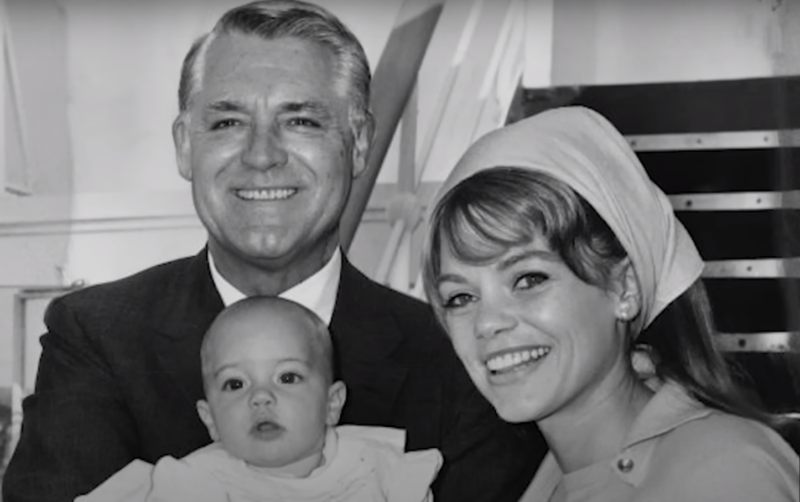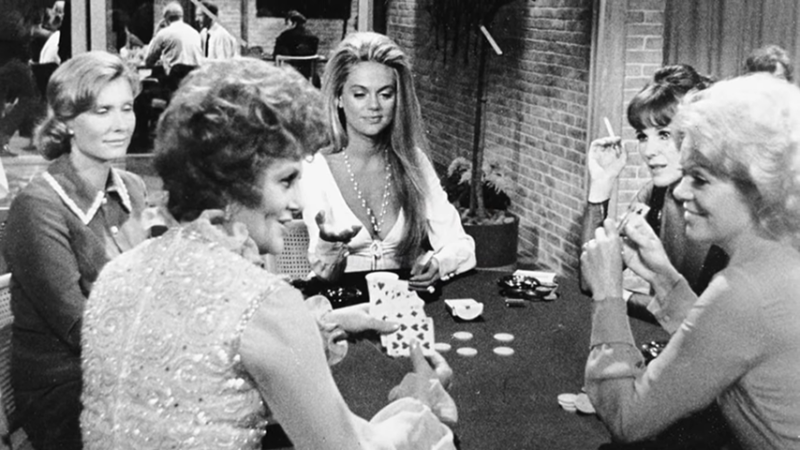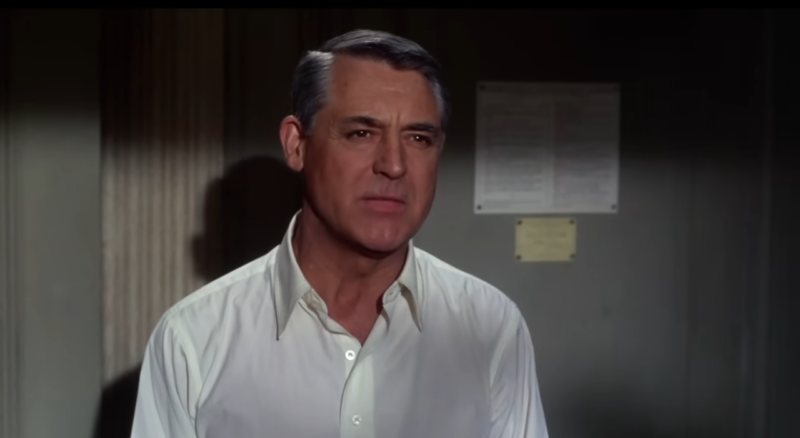Key Takeaway
- Transformation from Archibald Leach to Cary Grant: Cary Grant’s journey from a modest upbringing in Bristol, England, to becoming a Hollywood legend is a remarkable story of transformation, showcasing his ability to reinvent himself.
- Success in Comedy and Versatility: Grant’s breakthrough in comedies like “The Awful Truth” and “Bringing Up Baby” highlighted his exceptional comedic talent, and his work with Katharine Hepburn demonstrated his versatility as an actor.
- Complex Personal Life: His five marriages and the speculated relationship with actor Randolph Scott reveal a complex personal life that contrasted with his polished public image.
- Navigation of Personal Rumors: Grant’s handling of rumors about his sexuality, often with humor and ambiguity, illustrates the societal norms of the time and his desire to maintain privacy and control over his public persona.
- Lasting Legacy and Influence: Cary Grant’s career and personal life continue to influence discussions on celebrity, privacy, and sexuality, reflecting the changing dynamics of fame and public interest in the private lives of Hollywood stars.
Early Life and Career Beginnings
Cary Grant was born Archibald Alexander Leach in 1904, in the industrial city of Bristol, England. His early years were marked by modest beginnings in a working-class family.
The environment of Bristol, coupled with the societal norms of early 20th-century England, played a significant role in shaping his early worldview and personality.
Family Dynamics
Grant’s childhood was disrupted by a family tragedy when his mother, Elsie, was institutionalized, a fact he was unaware of until his late twenties. Believing she had abandoned him, this misconception deeply affected his relationships and emotional development.
His father, Elias, a factory worker, struggled to raise young Archie alone. The absence of a maternal figure and the strain in his relationship with his father contributed to the complex emotional landscape that Grant would navigate in his later life.
Entry into Acting
At the age of 14, Grant left home, a decision propelled by both the allure of escapism and a burgeoning interest in the performing arts. He joined a traveling stage troupe, Pender’s Knockabout Comedians, which became his entry point into the world of acting.
This experience not only honed his acting skills but also instilled a sense of discipline and resilience in him. The troupe’s tours across England provided Grant with a diverse range of experiences, laying the foundation for his future career in Hollywood.
Rise to Stardom in Hollywood

Cary Grant’s journey in Hollywood began with a crucial identity change, shedding his birth name for a more marquee-friendly moniker. His early years in Hollywood were challenging, with a series of films that failed to make a mark.
These initial setbacks, however, were instrumental in molding his resilience and understanding of the industry.
Breakthrough in Comedies
Grant’s career trajectory shifted dramatically with his foray into the comedy genre. Films like “The Awful Truth” and “Bringing Up Baby” were pivotal, showcasing his natural flair for comedy.
His impeccable timing and effortless charm resonated with audiences, establishing him as a leading man in Hollywood. These roles not only amplified his popularity but also demonstrated his versatility as an actor.
Collaborations with Katharine Hepburn
A significant chapter in Grant’s career was his collaboration with Katharine Hepburn. Their on-screen chemistry in films such as “Holiday” and “The Philadelphia Story” was palpable, captivating audiences with a blend of romance and wit.
These collaborations were not just commercially successful; they also contributed to Hepburn’s resurgence as a Hollywood star. Their joint ventures are remembered as some of the finest examples of early American cinema, combining great acting with sophisticated storytelling.
Personal Life and Marriages

Cary Grant’s personal life was as eventful as his career, marked by five marriages. Each union, from Virginia Cherrill to Dyan Cannon, brought its dynamics and challenges, often under the relentless scrutiny of the public and press.
These marriages, some ending in highly publicized divorces, impacted Grant’s image, portraying him as both a romantic and a figure of gossip in the Hollywood landscape.
Relationship with Randolph Scott
Amid his marriages, Grant’s most notable relationship was with actor Randolph Scott. The two shared a close bond, living together for a period, which fueled speculation about the nature of their relationship.
This association with Scott remained a point of intrigue and speculation, casting a different light on Grant’s personal life, contrasting with his public persona as a ladies’ man.
Public Perception and Jokes about Sexuality
Cary Grant navigated the rumors about his sexuality with a blend of dismissiveness and humor. He often made light of these speculations through jokes and witty remarks, maintaining a nonchalant demeanor in public.
Grant’s approach to addressing or sidestepping these rumors was indicative of the times and his desire to control the narrative around his personal life, in an era when Hollywood stars were closely monitored for their adherence to societal norms.
The Intimate Bromance: Grant and Scott
Cary Grant and Randolph Scott’s relationship was a blend of personal camaraderie and professional respect. While they lived together for several years, the exact nature of their relationship remains a topic of speculation.
Publicly, they were seen as close friends and colleagues, often attending events together and sharing a social circle. Privately, the depth of their relationship was kept away from the limelight, leading to varied interpretations by those outside their intimate circle.
Hollywood’s Response
Hollywood and the media of the time treaded cautiously around Grant and Scott’s relationship. The industry, known for its conservative stance on personal matters, especially in the era of the Hays Code, largely avoided direct commentary on the nature of their bond.
Media coverage, while hinting at more than friendship, often refrained from explicit speculation, maintaining a veneer of ambiguity. This approach reflected the era’s norms, where insinuations were preferred over outright allegations.
Legacy and Speculations
The relationship between Cary Grant and Randolph Scott has left a lasting imprint on Grant’s legacy. It has fueled ongoing discussions about his sexual orientation, with some suggesting he was bisexual, while others view their relationship as a deep friendship.
This aspect of Grant’s life has become a subject of interest in understanding the complexities of sexual identity in early Hollywood. It also reflects the changing perspectives on celebrity privacy and the evolving discussions around sexuality in the public domain.
FAQ
What inspired Cary Grant to change his name from Archibald Leach?
Cary Grant changed his name as part of his transition into Hollywood. This was a common practice for actors seeking a more memorable and marketable stage name. He chose “Cary Grant” for its euphonic quality and ease of pronunciation, factors important for his burgeoning film career.
How did Cary Grant’s early experiences in England influence his acting style?
Grant’s early experiences in England, particularly his time with the Pender’s Knockabout Comedians, instilled in him a strong sense of theatrical timing and physical comedy. These experiences laid the foundation for his distinctive style, blending suave sophistication with a natural comedic flair.
Did Cary Grant ever publicly acknowledge the nature of his relationship with Randolph Scott?
Cary Grant never publicly clarified the exact nature of his relationship with Randolph Scott. He maintained a private stance regarding his personal life, addressing rumors with humor and ambiguity.
What was the impact of Cary Grant’s marriages on his career?

Cary Grant’s marriages, especially his high-profile unions and divorces, often intersected with his public image. While they added to his allure as a romantic leading man, they also attracted media scrutiny, contributing to the public’s fascination with his personal life.
How did Cary Grant’s comedic roles influence his career compared to his dramatic roles?
Grant’s comedic roles, particularly in films like “The Awful Truth,” were pivotal in establishing him as a versatile actor. While he excelled in dramatic roles as well, it was his comedic timing and charm that solidified his status as a Hollywood legend.
In what ways has Cary Grant’s life story contributed to discussions on celebrity privacy and sexuality?
Cary Grant’s life, especially the private aspects and the rumors surrounding his sexuality have contributed to broader discussions on celebrity privacy and the complexity of sexual identity. His story reflects the evolving attitudes towards these issues in Hollywood and society at large.
Final Words
Cary Grant’s legacy as a Hollywood icon is intertwined with the intrigue of his private life, embodying both the glamour of stardom and the complexity of personal identity. His journey from Bristol to the heights of Hollywood fame encapsulates a narrative rich in talent, charm, and mystery.
Grant’s life, marked by public acclaim and private speculation, mirrors Hollywood’s own evolution in handling celebrity scandals and personal lives. His story offers a window into the changing dynamics of fame, where the allure of the screen and the realities of the stars behind it continue to captivate and provoke curiosity.

